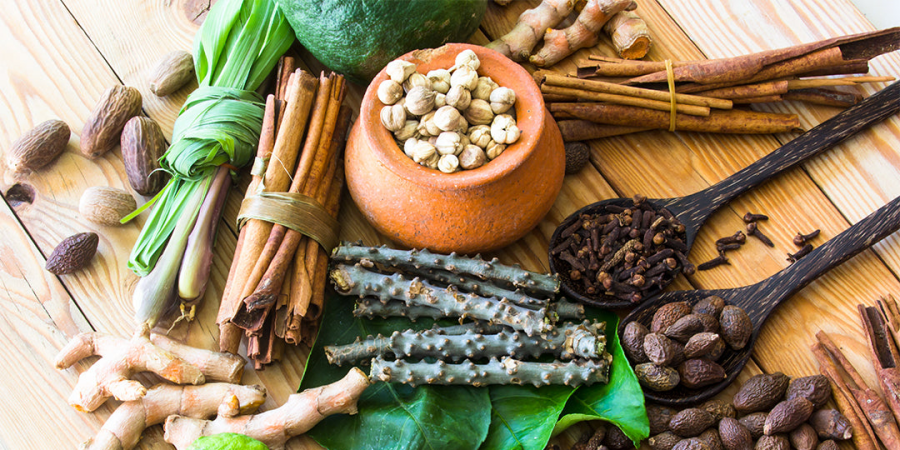

Introduction:
Ayurveda, the ancient Indian system of medicine, has been a guiding force for holistic well-being for thousands of years. Rooted in nature, Ayurveda emphasizes the use of herbs to promote health and balance. In this blog, we'll delve into the commonly available Ayurvedic herbs in India, unlocking the secrets of their medicinal properties.
1. Turmeric (Curcuma longa):
Widely recognized for its anti-inflammatory properties, turmeric is a staple in Indian households.
The active compound, curcumin, has been studied for its potential in managing various health conditions.
2. Ashwagandha (Withania somnifera):
Known as "Indian Ginseng," Ashwagandha is an adaptogen believed to help the body cope with stress.
It has been traditionally used to enhance vitality and promote overall well-being.
3. Tulsi (Ocimum tenuiflorum):
Holy basil, or Tulsi, is revered for its medicinal and spiritual significance.
Its adaptogenic properties are thought to enhance resilience to stress and support the immune system.
4. Amla (Emblica officinalis):
Amla, a powerhouse of vitamin C, is celebrated for its antioxidant and immune-boosting effects.
It is a key ingredient in many Ayurvedic formulations aimed at promoting longevity.
5. Neem (Azadirachta indica):
Neem is a versatile herb with antifungal, antibacterial, and blood-purifying properties.
It is commonly used in skincare products and is believed to support overall detoxification.
6. Ginger (Zingiber officinale):
Ginger, a kitchen essential, is valued in Ayurveda for its digestive benefits.
It is often used to alleviate digestive discomfort and enhance metabolism.
7. Brahmi (Bacopa monnieri):
Known for its cognitive-enhancing properties, Brahmi is believed to support memory and concentration.
It is often used in Ayurvedic formulations to promote mental clarity.
8. Triphala:
A blend of three fruits—Amla, Haritaki, and Bibhitaki— Triphala is a popular Ayurvedic formula for digestive health.
It is thought to cleanse and rejuvenate the digestive system.
9. Shatavari (Asparagus racemosus):
Especially beneficial for women, Shatavari is believed to support reproductive health and hormonal balance.
It is often used in Ayurvedic formulations for women's well-being.
10. Guggul (Commiphora wightii):
Guggul is derived from the resin of the Mukul myrrh tree and is known for its cholesterol-lowering properties.
It has been used traditionally to support cardiovascular health.
Conclusion:
India's treasure trove of Ayurvedic herbs provides a holistic approach to health and well-being. Incorporating these herbs into your lifestyle, either through culinary use or as part of Ayurvedic formulations, may contribute to a balanced and harmonious life. Embracing the wisdom of Ayurveda allows us to tap into the healing powers of nature that have stood the test of time.
